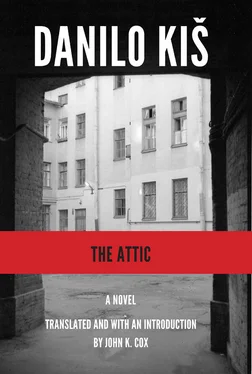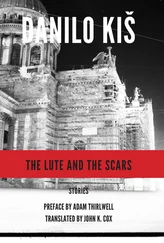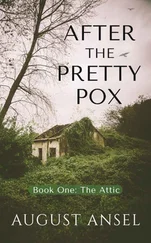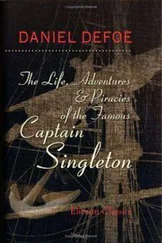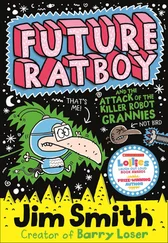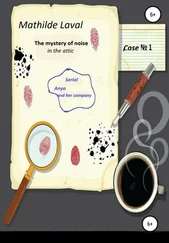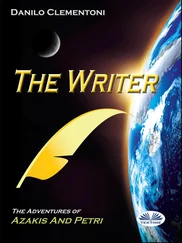Danilo Kiš - The Attic
Здесь есть возможность читать онлайн «Danilo Kiš - The Attic» весь текст электронной книги совершенно бесплатно (целиком полную версию без сокращений). В некоторых случаях можно слушать аудио, скачать через торрент в формате fb2 и присутствует краткое содержание. Год выпуска: 2012, Издательство: Dalkey Archive Press, Жанр: Современная проза, на английском языке. Описание произведения, (предисловие) а так же отзывы посетителей доступны на портале библиотеки ЛибКат.
- Название:The Attic
- Автор:
- Издательство:Dalkey Archive Press
- Жанр:
- Год:2012
- ISBN:нет данных
- Рейтинг книги:4 / 5. Голосов: 1
-
Избранное:Добавить в избранное
- Отзывы:
-
Ваша оценка:
- 80
- 1
- 2
- 3
- 4
- 5
The Attic: краткое содержание, описание и аннотация
Предлагаем к чтению аннотацию, описание, краткое содержание или предисловие (зависит от того, что написал сам автор книги «The Attic»). Если вы не нашли необходимую информацию о книге — напишите в комментариях, мы постараемся отыскать её.
Bildungsroman
The Attic — читать онлайн бесплатно полную книгу (весь текст) целиком
Ниже представлен текст книги, разбитый по страницам. Система сохранения места последней прочитанной страницы, позволяет с удобством читать онлайн бесплатно книгу «The Attic», без необходимости каждый раз заново искать на чём Вы остановились. Поставьте закладку, и сможете в любой момент перейти на страницу, на которой закончили чтение.
Интервал:
Закладка:
Then the car stopped all of a sudden and out came a man in a sheepskin coat.
“Strange,” he said, but I couldn’t see to whom he addressed these words. I couldn’t tell if there was anyone else in the vehicle because the light wasn’t on.
The man in the sheepskin squatted next to the dog carcasses and contemplated them for a long time, repeating the words “Strange! Strange!”
We flattened ourselves against a cracked old wall in the shadows and held our breath. The only other thing we saw was the man getting back into his car and switching the headlights back on.
It was only when the automobile was already moving down the road that the engine roared to life. That’s when it dawned on me how the man in the sheepskin coat had managed to take the dogs by surprise. The car had been rolling down the road with no lights, in neutral, with the cunning of a wild animal; and the wind was blowing in the opposite direction.
Then we jumped over the ditch and halted at the spot where the car had stood just a moment before. Both of the dogs lay on their right sides, almost symmetrically arranged next to each other. One of them was an old bulldog with a simian snout that the tires had mutilated; the other was a small Pekinese with a medallion around its neck. I stooped down to look at its collar. The following words were stamped into the yellow medallion, no bigger than a fingernail:
— Larron. Crimen amoris .—
I hoped that I’d find a notice in the newspaper, that I’d be able to make a statement and give the medallion back to the dog’s owner, but I was never able to find anyone advertising for his return.
Therefore I took the medallion to a goldsmith one day, after I’d convinced myself that there was no reason not to consider this piece of gold my personal property.
“ Larron means swindler,” said the goldsmith without looking up at me.
I was astonished.
“That was my dog’s name,” I said to conceal my embarrassment.
“Strange!” he remarked.
“He liked to steal plums.”
“Plums?” said the goldsmith, looking up at me.
“It cost him his life,” I said.
“Strange,” he said. “And you want me to make you a ring out of this?”
“Yes,” I said.
“Hmmmm,” said he. “Of course, that’s your business.”
Then I said, “You mean you really can’t make a ring out of it.” In those days I didn’t pay any attention to trains. But they tormented me with their screams without my even being conscious of it. Some kind of dark presentiment grew in me, a dread of their howling.
Nonetheless I said one evening, to my own surprise, “I’m afraid of trains.”
“You aren’t afraid of anything,” she said. “You don’t need to be scared.”
“I’m also afraid of dogs,” I said.
“Oh!” she said, but she was unable to say anything more. The moment she had rounded her mouth to say “oh,” I glued my lips to hers, so that our kiss intoned a dark note of repentance, a hollow, protracted “oh. . oh. . oh. .” which swelled up and thinned until it burst with a light pop, like a bubble.
“Oh!” she repeated, and now her voice was huskier, more intoxicated.
“What’s wrong with you tonight?” she said.
“I shouldn’t have said that. You shouldn’t have permitted me to say it.”
“What?” she asked.
“That thing about the trains and the dogs. I shouldn’t have verbalized that. If I hadn’t mentioned it, I wouldn’t be thinking about it now.”
We lay in the dry leaves next to the railway embankment.
I have never been able to explain what goes on inside me. As soon as I sense, from a slight rumbling of the ground, that a train is approaching, I am overcome by my masculine instincts and some sort of anxiety, agitation, which compels me to dash under the wheels.
“Hold me,” I said. “Tight.”
“Are you frightened again?” she asked. “There aren’t any dogs here. Or did you hear something?”
“Yes,” I said. “The cracking of pits between their eye-teeth.”
“That’s the watchman making his rounds.”
“No,” I said. “Just hold me tight.”
As the train thundered past, making a whirlwind of the withered foliage that we had thrown together in a pile, I trembled, on the verge of fainting. Then, suddenly and inexplicably, I began to sob.
“Take a look!” she said. “Look!”
It was dark enough that I didn’t need to blush. Furthermore, I wasn’t even ashamed of crying. I thought about coming up with an explanation for her, but I gave up on that too. I even liked the fact that I had cried in front of her.
“Look here, you lunatic!” she repeated. “Look what I found.” Only then did I open my eyes.
She was holding a blonde rag doll in the palm of her hand. I took hold of its chintz dress with two fingers, pulled up its little skirt, and laughed out loud.
“This is our baby,” I said. “Immaculate conception.”
“You’re making fun of me,” she said.
“No, I’m not.”
“Good,” she said. “Let’s baptize her.”
“No,” I said. “Let’s toss her under a train. She has a snout like that bulldog that the car ran over.”
She looked at the doll’s face for a moment, then gave a small cry and flung her, spinning, over the embankment.
I felt nothing but the sawdust from the doll’s guts coating my face like sand.
“Strange,” she said, when she had torn herself away from my lips.
“Yes,” I said. “What’s strange?”
She lay on her back in the withered leaves, staring up at the dark night sky.
But all the stuff between us had started a long time before that.
Back at the time I think I first met her, I was feverishly demanding answers from life, and so I was completely caught up in myself — that is, caught up in the vital issues of existence.
Here are some of the questions to which I was seeking answers:
— the immortality of the soul
— the immortality of sex
— immaculate conception
— motherhood
— fatherhood
— the fatherland
— cosmopolitanism
— the issue of the organic exchange of matter and
— the issue of nourishment
— metempsychosis
— life on other planets and
— out in space
— the age of the earth
— the difference between culture and civilization
— the race issue
— apoliticism or engagement
— kindness or heedlessness
— Superman or Everyman
— idealism or materialism
— Don Quixote or Sancho Panza
— Hamlet or Don Juan
— pessimism or optimism
— death or suicide
and so on and so forth.
These problems and a dozen more like them stood before me like an army of moody and taciturn sphinxes. And so, right when I had reached issue number nine — the issue of nourishment — after having solved the first eight problems in one fashion or another, the last addition to the list turned up: the question of love. .
Broken down into its component parts, this issue had — in a concrete case — the following determinants:
Question : What color are her eyes?
Hypotheses : Green, blue, blue-green, the color of ripe olives, aquamarine, like the evening skies over the Adriatic, over Madagascar, over Odessa, over Celebes; like the sea at Brač, at the Cape of Good Hope, etc.
Question : The color of her hair?
Hypotheses : Brown, blonde, like fairy hair, hair like the Lady of the Lake’s, the color of mellow moonlight, of pure sunny flax, of a sunny day. .
Her voice?
The voice of a silver harp, of a viola with a mute, of a Renaissance lute, the voice of a Swedish guitar with thirteen strings, of Gothic organs or a miniature harpsichord, of a violin staccato or a guitar arpeggio in a minor key.
Читать дальшеИнтервал:
Закладка:
Похожие книги на «The Attic»
Представляем Вашему вниманию похожие книги на «The Attic» списком для выбора. Мы отобрали схожую по названию и смыслу литературу в надежде предоставить читателям больше вариантов отыскать новые, интересные, ещё непрочитанные произведения.
Обсуждение, отзывы о книге «The Attic» и просто собственные мнения читателей. Оставьте ваши комментарии, напишите, что Вы думаете о произведении, его смысле или главных героях. Укажите что конкретно понравилось, а что нет, и почему Вы так считаете.
